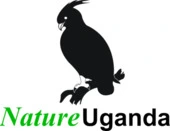Mabira Forest Restoration Programme
Nakindiba and Mabira Forest are part of a few remnant forest fragments that once formed the vast of semi-evergreen rainforest in the Victoria Basin forest-savanna mosaic ecoregion. Both Forests are situated in urban centres and have been under immense pressure from expanding urban settlements. Mabira Forest is surrounded by fast-growing the fast growing towns of Lugazi, Njeru, Nakibize, Buikwe, Kagulimira, Kayunga, and Mukono, and about 80 villages including highly populated 14 enclaves measuring about 2,660 Ha with approximately population size of about 200,000 persons. Nakindiba Forest is the closest Natural Forest to Uganda’s Capital City Kampala, over 30,000 from the neighboring Kakiri Town are dependent on this 140 Ha Forest for firewood and timber.
The goal of restoration work at Mabira and Nakindiba Central Forest Reserves is to ensure that these two forests continue to;
- Play a key role in mitigating the impacts of Climate Change through Carbon Sequestration.
- Sustainably provide much needed ecosystem services and products that support the livelihoods of surrounding communities.
- Contribute to biodiversity conservation, given that the two forest are the only remaining refugia for many species of Fauna and Flora whose range and distribution has been constrained by the large scale conversion of forests into urban settlements and farms in Central Uganda.
Although, the initial total targeted area for restoration under this grant was 500 Ha in Mabira Forest, the additional restoration work at Nakindiba Forest (142 Ha) has now brought the total targeted area for restoration under the grant to 642 Ha (500 Ha in Mabira Forest and 142 Ha in Nakindiba Forest).
Conservation Approach
NatureUganda’s approach to restoration at the two forest reserves has involved both management processes aimed at encouraging;
- Forest regeneration of moderately degraded areas of forest through management processes and collaborative arrangements with communities and the National Forest Authority (NFA) especially at Mabira Forest Reserve. Given that Mabira Forest contains 14 highly populated enclaves measuring about 2,660 Ha with approximately population size of about 200,000 persons, it has been important for Nature Uganda to focus on strengthening community participation in forest management and conservation.
- Restoration planting of heavily degraded areas of forest; This approach to restoration has been undertaken at Nakindiba Forest Due to the heavily encroached and highly degraded nature of Nakindiba Forest, it was important to first clearly demarcate the forest to avoid further encroachment from expanding settlements and agricultural farms before embarking on the restoration of the heavily degraded sections of the forest by active planting.
Project Achievements
- The project is contributing to the restoration of 712 Ha of forest at Mabira and Nakindiba Central Forest Reserves (570 Ha at Mabira Forest and 142 Ha at Nakindiba Forest) with estimated trees planted and regenerated saplings numbering 335,000. Restoration efforts at Mabira Forest are working to encourage forest regeneration in a moderately degraded section of the forest (500 Ha) through enhancing collaboration between NFA and the local communities living in and around the Forest Reserve.
- At Nakindiba Central Forest Reserve on the other hand, restoration efforts have not only focused on replanting the heavily degraded sections of the forest, but most importantly demarcating the forest. As a result, the entire forest 142 Ha, has been clearly demarcated with pillars together with the communities and NFA.
- The Collaborative Forest Management (CFM) Groups at Mabira Forest have been supported with Energy Saving Stoves and BeeHives as a way of improving their livelihoods and reducing community dependance on the Forest for firewood.
Project Partners
Related Stories
- Launch of NU-NFA Partnership to restore degraded Ugandan Forests and Restoration of 100Ha at Mabira Forest: https://www.ntv.co.ug/ug/news/national/nfa-urges-buikwe-residents-to-protect-mabira-forest–4178808





